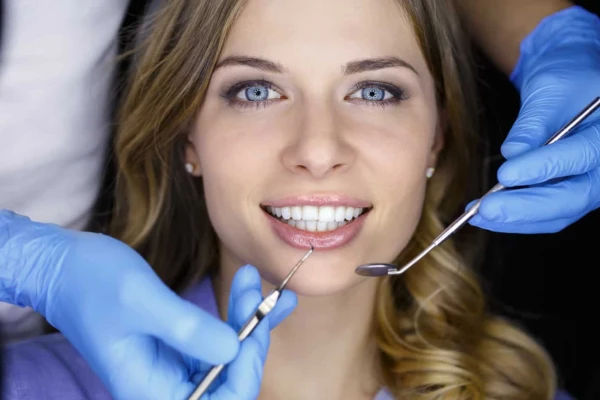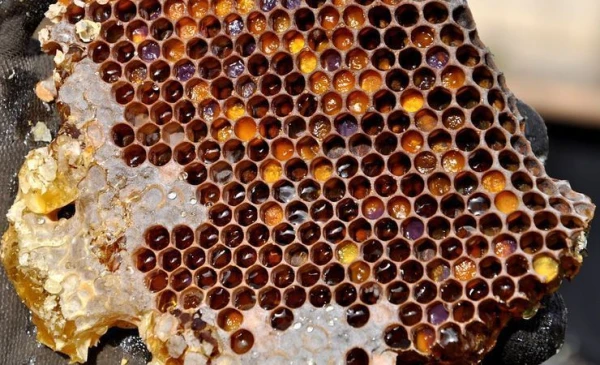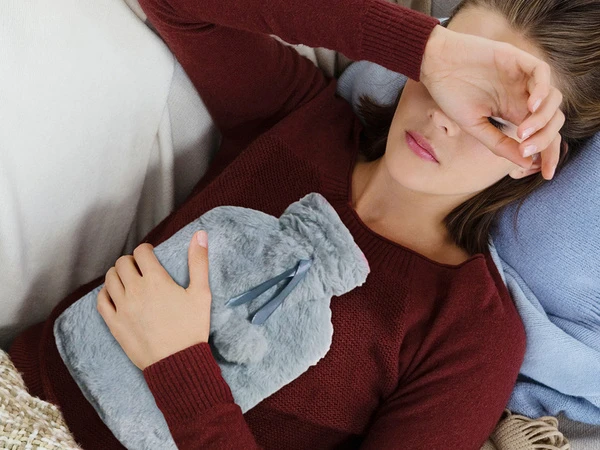
Increasingly, among popular beauty hacks on social media, you can find simple folk recipes that have stood the test of time. One of them is the well-known apple cider vinegar — a favorite of Hollywood stars, trichologists, and stylists. What is so magical about it?
It’s hard to believe, but that very useful product — apple cider vinegar, familiar since childhood, has turned out to be a real find in the beauty industry. Why have recipes from our grandmothers suddenly appeared on the shelves of cosmetic stores? The thing is that apple cider vinegar can truly work wonders for hair.
Is Apple Cider Vinegar Suitable for Everyone's Hair Care?
As with most hair care products, it is necessary to determine the hair and scalp type before using apple cider vinegar. If you have dry hair or a dry scalp, it is better to refrain from using it, as it may exacerbate dryness.
Apple cider vinegar can cause irritation in people with sensitive skin. It is important not to overdo it to minimize possible irritation, and it is better not to use it if there are open wounds or sores on the scalp.
Benefits of Apple Cider Vinegar for Hair
Has Antibacterial and Antifungal Properties
The product effectively cleanses hair from dirt and cosmetic residue, as well as combats fungal infections, preventing dandruff.
Supports pH Balance
Studies prove that the skin, including the scalp, has a more acidic nature than hair, but at the same time, many hair care products are too alkaline, meaning they have too high a pH level. Applying a product with a lower pH (higher acidity), such as apple cider vinegar, to the scalp can normalize the pH of the scalp.
Cleanses from Impurities and Sebum
Styling products, dust, and dirt accumulate on hair daily, clogging pores and hindering the scalp's breathing. Apple cider vinegar gently and deeply cleanses the skin, dissolving buildup and smoothing the skin's surface without damaging or drying it out. Additionally, it does not dry out hair and skin and does not strip hair of its natural oils, which can hinder the penetration of moisturizing agents into the hair shaft.
Soothes Scalp Itchiness
Since apple cider vinegar has anti-inflammatory properties, it can improve the overall condition of the scalp and reduce itchiness. Apple cider vinegar has natural acidity that normalizes the pH level of the scalp, creating an optimal environment for healthy hair growth and preventing dandruff and itching.
Eliminates Dandruff
One of the main causes of dandruff is bacteria and fungi residing on the scalp. The antiseptic and antimicrobial components of apple cider vinegar combat these microorganisms, disinfecting the skin and preventing the appearance of white flakes, keeping hair clean and healthy.
Adds Shine
Apple cider vinegar removes impurities and closes the cuticles, making hair shinier. The cleansing properties of apple cider vinegar not only make hair and scalp perfectly clean but also help restore shine and luster to dull locks.
Increases Flexibility and Elasticity
Hair treated with a solution of apple cider vinegar becomes softer and more elastic. It is easier to comb, stops breaking, and tangling. The natural acids in vinegar restore the integrity of the hair cuticles, improving their mechanical properties.
Activates Hair Growth
Improved microcirculation and nourishment from the vitamins and minerals present in apple cider vinegar positively affect the functioning of hair follicles. Follicles receive additional nourishment, increasing the flow of oxygen and nutrients, stimulating accelerated hair growth.
Makes Hair Fluffy and Voluminous
The closure of the hair cuticle under the influence of the organic acids in apple cider vinegar retains internal moisture, making hair more hydrated and dense. Visually, this results in additional volume and fluffiness.
Strengthens Hair Roots
The organic acids and trace elements contained in apple cider vinegar gently restore the protective functions of the scalp, nourishing and strengthening hair follicles. The health of the root directly affects the strength of the hair itself, so regular use of apple cider vinegar helps prevent hair loss and supports active growth.
Contraindications
But as they say, even a beneficial remedy should be used wisely. Before use, make sure you have no contraindications:
-
Damaged scalp (abrasions, scratches, wounds).
-
Individual intolerance to the product's components.
-
Dry, depleted hair.
And the main rule: apple cider vinegar is always used diluted! Concentrated product can damage hair and scalp.
How to Make an Apple Cider Vinegar Rinse at Home
Step 1
Dilute two to three tablespoons of apple cider vinegar in 240 ml of water.
Step 2
After washing your hair with shampoo and conditioner, apply the mixture to your hair and rub it into your scalp.
Step 3
Leave the mixture on for a couple of minutes.
Step 4
Rinse hair with cool or cold water to close the cuticle, add shine, and reduce frizz.
Step 5
Repeat the procedure regularly, but determine the washing frequency based on hair type. Those with fine or brittle hair are recommended to use the product once every few weeks or twice a month. Those with sensitive scalps should use the product no more than twice a month. If you have long, thick hair, you can use the product up to twice a week.
Be cautious; if you feel burning, itching, or dryness after applying apple cider vinegar to the scalp, it is recommended to discontinue use.
Possible Side Effects
Dryness and Brittleness
Since apple cider vinegar is acidic, excessive use can lead to the washing out of natural oils from the scalp and hair, resulting in dryness, brittleness, or tangling.
Scalp Irritation
If apple cider vinegar is not diluted properly, it can cause itching, redness, or even burns, especially in cases of skin conditions such as eczema or psoriasis.
Color Washing Out
Due to the high acidity level in apple cider vinegar, dye molecules can break down.
Vinegar Smell
If you use a homemade mixture, a slight vinegar smell may remain on thicker or porous hair.
Allergic Reactions
This is rare, but some people may experience an inflammatory reaction of the scalp to apple cider vinegar. If you use a homemade solution, perform a patch test on a small area of skin before applying it to your head.











